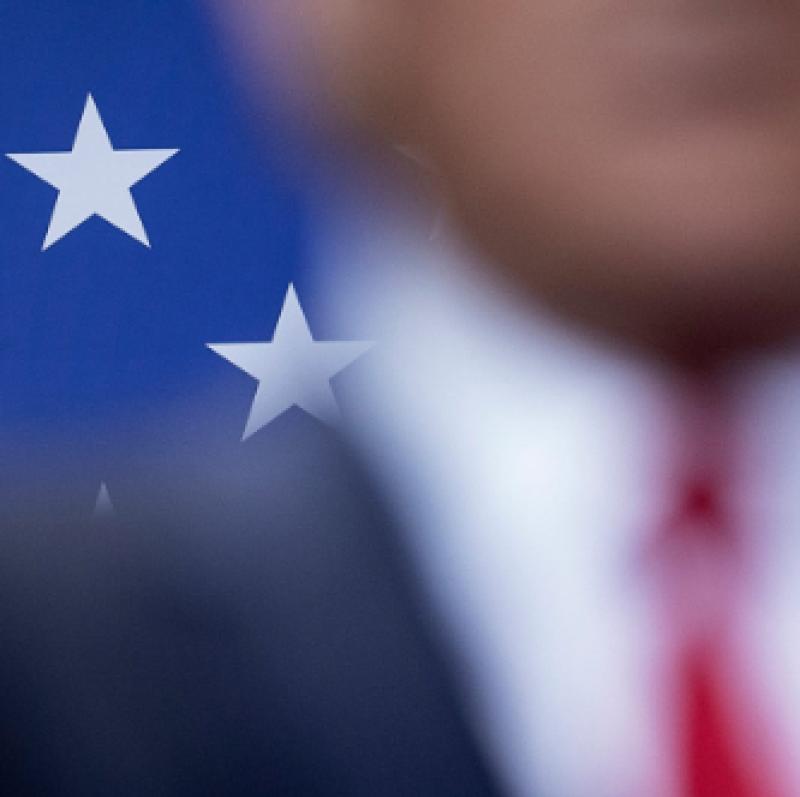What Comes Next?
By: William Kristol (The Bulwark)

I probably disagree with Bill Kristol on almost everything.
But there is one thing we do agree on:
We do not want a dictator in America.


President Donald Trump gestures during a Keep America Great Rally, December 18, 2019
Brendan Smialowski / AFP
So Trump is gone from the presidency, twice impeached but never convicted. And now politics goes on. What is to be done?
For many people—for many of us—the fight against Trump in 2020 was a peak of their time—of our time—in politics. No less a figure than James Carville wrote in the fall of 2020 that,
What this moment has done for all of us—for all those who have sat on the sidelines of history or never were presented with something that held as much gravitas—is that it has given us, for one fleeting moment—the moment we're living right now—a sense of common purpose. Common purpose of which we will be able to recall forever: that when our country and our Republic were on the brink of collapse, when our fellow Americans needed us, we took a blow torch to our past differences, our former conflicts and our old rivalries, and we fought together…As I sit here, wonderstruck in retrograde, I can say with certainty that in all my years, joining in this crusade to take America back from the brink of destruction is the greatest thing I have ever been a part of in my life.
Our efforts were focused on November 3. They then had to continue past Election Day, and past the votes cast by the electors on December 14, until the insurrection of January 6 and the final vote on January 7, to the final pardons of January 20—and then until the Senate impeachment vote on February 13.
But what now? What next?
Many people have thought deeply about this. I've been in discussions with groups ranging from two to two hundred, where we've all grappled with this question: How do we save and strengthen American liberal democracy?
And the answers put forward have been varied: Save the Republican Party! Save the Democratic Party! Start a new party! Create a faction within or between parties! Electoral reform! Political reform! Social media reform! And let's not forget civil society . . .
The discussions have been interesting and many of the suggestions reasonable. Some of the ideas put forward are practical and achievable. Others seem more like wishful thinking. But even there, wishful thinking has its place in stimulating bold action, so I don't dismiss the less likely scenarios and most longshots efforts.
But I do have a few thoughts.
First, we don't know what the future will bring. So we should be modest in our claims even to be able to weigh probabilities. This means that it makes sense for different people to work on various fronts: ideas, organizations, political and electoral reforms, candidate recruitment, elections—based on various premises as to which party can be saved and the like, without trying at this point to put all (or even most) of our eggs in one basket. After all, if the last four years have taught us nothing, it should be the lesson that baskets sometimes turn out to be not as sturdy as one would have hoped.
Second, few political moments are dramatic in the way 2020 was. And this isn't just a question of drama. It's also the case that one often doesn't know ahead of time which moments will be inflection points, as we knew the 2020 election was.
So the fight to preserve and strengthen free government invites activity on various fronts with varying emphases. The next couple of years will probably resemble the American Revolutionary War more than D-Day. We don't know ahead of time where, if anywhere, the big breakthroughs will come. We don't know where a defensive stand could be crucial. We don't know where there will be an opportunity for a counteroffensive or a straight-out offensive.
Third, lots of the work won't be dazzling. It won't be scintillating. It won't even be particularly dramatic.
Much political activity—much worthwhile political activity—the great sociologist Max Weber observed a century ago, is difficult: "Politics is a strong and slow boring of hard boards." This takes, Weber continued, "both passion and perspective." And that means people "must arm themselves with that steadfastness of heart which can brave even the crumbling of all hopes. This is necessary right now, or else men will not be able to attain even that which is possible today."
Weber said this in a lecture to German college students in Munich in 1919 (later published as "Politics as a Vocation"). One can certainly observe that too few Germans acted in the spirit of his counsel in the years that followed. Whatever the many and deep reasons for this, we are far more advantageously situated than the Weimar Republic was in 1919.
Our task is less daunting than that which faced Weber and his successors. But now as then, it's unlikely there is any substitute for the "strong and slow boring of hard boards."
William Kristol is editor-at-large of The Bulwark .

Tags








